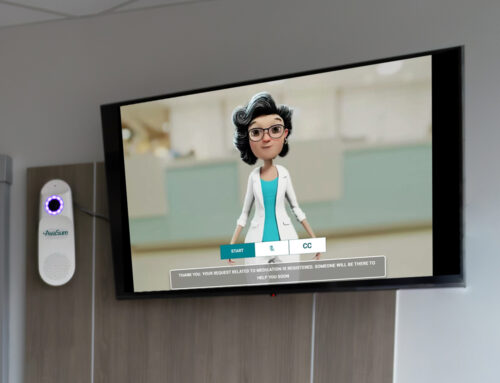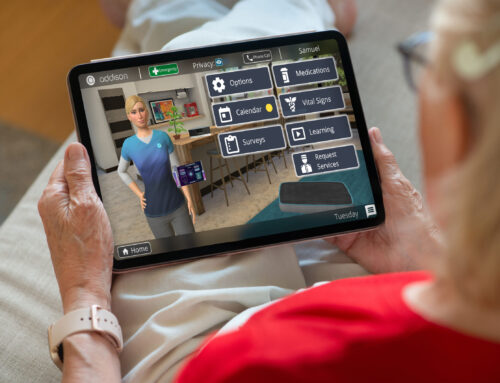Abridge, a leading company in AI-powered medical conversation technology, has launched the first-ever clinical research collaborative dedicated to investigating the impact of ambient AI in healthcare. The Abridge Research Collaborative (ARC) aims to explore how ambient AI affects five key areas: clinician experience, patient experience, healthcare costs, outcomes, and health equity.
ARC will gather a diverse group of experts from academia, professional well-being, informatics, health operations, and policy to drive evidence-based research in this field. The collaborative’s goal is to provide insights into the safe, responsible, and effective use of ambient AI as it becomes increasingly integrated into clinical environments. The research will focus on how AI transforms medical documentation and how it influences patient care.
Leading the Research Initiative
ARC’s inaugural steering committee will be co-chaired by Dr. Tina Shah, Chief Clinical Officer of Abridge, and Dr. Lee Schwamm, Chief Digital Health Officer at Yale New Haven Health System. Other notable members of the steering committee include Dr. Vineet Arora, Dean for Medical Education at The University of Chicago Pritzker School of Medicine, and Dr. Jackie Gerhart, Chief Medical Officer at Epic, along with other distinguished healthcare leaders from Stanford, UCSF, and CMS. These experts will guide the research agenda as ARC engages more specialists over the coming months.
Focus Areas of ARC’s Research
The launch of ARC marks a significant step toward understanding how AI technology is changing healthcare. The initiative will address multiple research dimensions:
1. Clinician Experience: Ambient AI, which uses real-time voice data to document medical interactions, aims to reduce clinician burnout by automating administrative tasks. ARC will study how AI impacts clinicians’ workflow, stress levels, and overall job satisfaction.
2. Patient Experience: The collaborative will evaluate how AI-driven systems influence patient care. Are patients receiving more accurate diagnoses, better communication, and quicker treatment recommendations due to AI systems like Abridge?
3. Healthcare Costs: ARC intends to assess whether ambient AI can help reduce overall healthcare costs. This will include examining whether AI can streamline hospital operations, reduce inefficiencies, and improve the cost-effectiveness of patient care.
4. Health Outcomes: The research will also investigate how AI-driven systems impact patient outcomes. Can the improved clinical documentation provided by AI contribute to better treatment plans and improved health results?
5. Health Equity: A key concern is whether AI technologies help or hinder health equity. ARC will examine if AI-based tools can help close gaps in healthcare access and outcomes, or if they introduce new biases or barriers.
Why This Research Matters
According to Dr. Tina Shah, the development of ARC is essential as AI solutions like Abridge become more widespread. “As health systems rapidly adopt AI, rigorous research proving safety and efficacy should be a requirement for any marketplace solutions,” said Dr. Shah. The collaborative aims to establish trust and accountability in the deployment of AI solutions across healthcare systems.
Dr. Schwamm also highlighted the potential for ARC to be a game-changer. “Deeper understanding of the structure and content of medical conversations will generate fresh insights into the patient journey that may ultimately lead to improved health outcomes,” he said.
Abridge’s Role in the Future of AI in Healthcare
Founded in 2018, Abridge has been at the forefront of using generative AI for healthcare conversations. The company’s AI platform transforms conversations between clinicians and patients into real-time, structured clinical notes, helping to alleviate documentation burdens on healthcare professionals. Abridge’s technology integrates with Electronic Medical Records (EMR), enabling healthcare providers to streamline their workflows and focus more on patient care.
Abridge’s AI platform is currently available in over 14 languages and supports more than 50 medical specialties, giving it a broad scope of influence in diverse healthcare settings. According to a recent KLAS survey, Abridge’s platform scored a 95.3 rating out of 100, with an A+ grade for the likelihood of recommendation and immediate time-to-outcome improvements reported by users.
Looking Ahead
Over the next several months, ARC’s steering committee will define the collaborative’s research agenda and continue to expand its network of experts. As ambient AI continues to evolve, the research conducted by ARC will offer invaluable guidance to healthcare providers, developers, and policymakers. The insights generated could potentially revolutionize patient care and health system operations, contributing to more efficient, equitable, and cost-effective healthcare.
For more information about Abridge and its research initiatives, visit Abridge’s official website.












